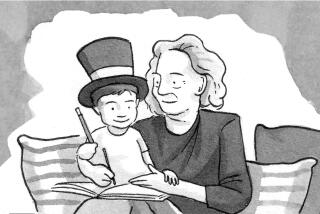. . . We Ought To Be Using
When my family and I came to the U.S. from Chile, my mom and dad worked at the Sheraton Hotel all day; my sister and I were at a child care center. My sister, since she was 2 and I, since I was 4, have been immersed in the English language. For a child, a new language is not difficult to learn if you are being spoken to in English by every adult and peer except your parents. The nursery rhymes, the stories and television were all in English. There was no way I was not going to learn to communicate in English.
Although my parents aren’t college-educated, they were smart enough to know that what was truly at risk was my sister and I losing our Spanish language. Because of this, they made sure that we attended schools that had Spanish classes. They even asked us not to speak English in the house, although that wasn’t possible to enforce. By age 7, I was reading, writing, speaking and thinking in English. My parents tried very hard to learn English, but it came slowly.
I remember when I was young, we were often given a hard time because my parents spoke only Spanish--whether it was fighting for a parking space when we went to the beach or at the local store. Back then, my mother couldn’t defend herself verbally, so we were very intimidated. And as an ignorant little kid, one is easily made to feel scared and embarrassed because your parents can’t speak English. My parents needed my help to fill out tax forms, to write letters, fill out applications or ask for information at the store. My parents couldn’t help me with my English or Social Studies subjects in school because of the language barrier. But they did help me in math, enough so that I almost became an engineer.
I know English well and have retained my parents’ Spanish language. And I’m proud to say that I have also retained my culture. I now see why it was so important for my parents never to let us forget our language.
Of course everyone should learn English. It is the most widely spoken language in the world. But if English is the “official” language, many will be unable to fill out a job application, enroll their children in school, register to vote. We all need to learn and speak English, but there needs to be a system to assist in the transition. That’s what bilingual forms and bilingual education are all about.
We also should be allowed to speak the language that we have grown up with. Taking away the right to communicate is an atrocious idea. It is dehumanizing to steal a person’s language, their culture, their identity. This is a nation of immigrants from all over the world. People of Latin America are responsible for much of the work done behind the mops and brooms or bent over under the sun picking vegetables, gardening lawns or cooking food. We have the right to speak our language and express ourselves and our culture as only we know how. We should make learning English in this country easy for everybody. But that does not mean you have the right to cripple everybody who doesn’t speak it.


